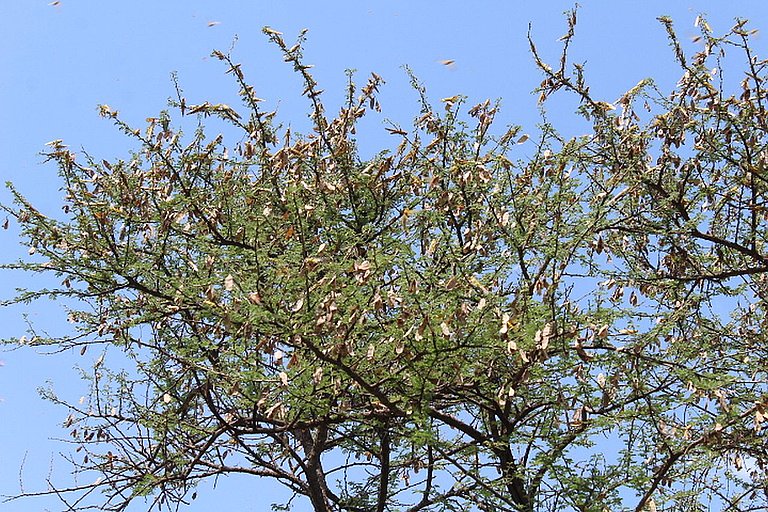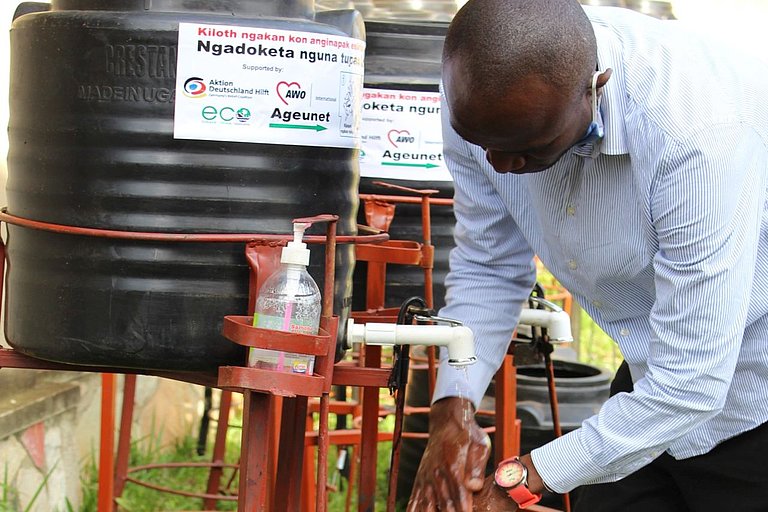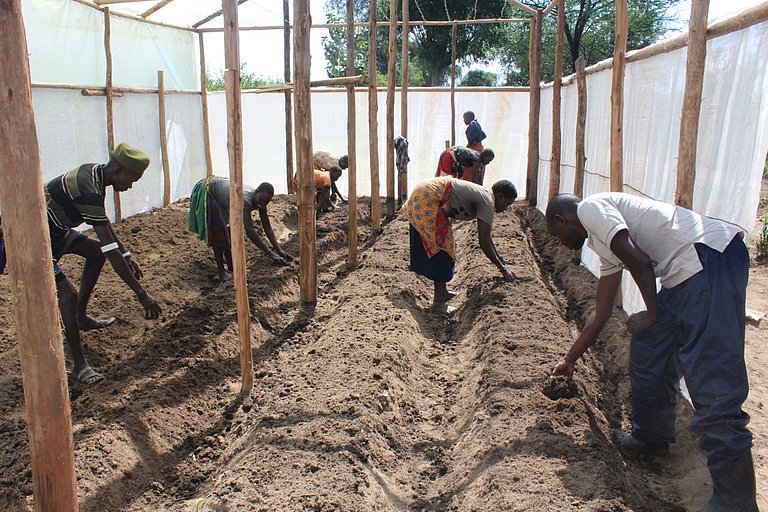The Karamoja sub-region, located in north-eastern Uganda, is considered one of the poorest areas in the world. A disproportionate number of people live in absolute poverty here, many are undernourished. The people in the region are largely dependent on agriculture and animal breeding for their livelihoods - in an environment known for its harsh climatic variability. In addition to these circumstances, desert locusts from Kenya invaded the Karamoja sub-region in February 2020. Uganda has not had a comparable large locust infestation since the 1960s. Numerous swarms continue to move in parts of the region. The locusts destroy crops and pastures and thus the essential livelihood of thousands of people. The infestation therefore poses another significant risk to the food security and livelihoods of the people in the region, who are mainly smallholder farmers and pastoralists.
The locust plague caught the country unprepared

The national government's interventions have been poorly resourced and uncoordinated. Since the last major locust infestation in Uganda which occurred more than 50 years ago, local knowledge about it has also faded away. In order to reduce the impact of the locust plague on affected smallholder farmers, we provide affected households with seeds and seedlings for fast-growing vegetables and cereals. They also receive agricultural tools. In addition, model greenhouses with drip lines are set up in the villages and people are educated about their usefulness and function as a measure against the locust plague.
Double load
Adding to the huge challenges of the locust infestation, the global spread of COVID-19 is also catching the country completely unprepared. Uganda's health systems are already stretched to capacity. In addition, the national containment measures and restrictions have far-reaching consequences for the population: seasonal unemployment, a worsening of hunger and an increase in poverty. As a result, many households now find it even more difficult to provide their families with essentials such as food and hygiene items.
Measures against the spread of COVID-19

Together with our partner organisation ECO and Aktion Deutschland Hilft, we are supporting the communities of the Karamoja region with urgently needed material and information to mitigate the effects of the locust plague and COVID-19. Information campaigns are an important tool in the fight against the effects. Radio broadcasts will be used to reach as many people as possible and educate them about the spread and mitigation of the impacts of the locust plague and COVID-19. In addition, existing social structures are supported in the dissemination of information and the establishment of early warning measures by providing them with materials such as loudspeakers, bicycles and smartphones.
To contain the spread of COVID-19, effective hygiene is of great importance. But in the region, it is often impossible for people to implement the important hygiene measures. There is a lack of washing facilities and hygiene articles such as soap and disinfectants. ECO is therefore setting up communal hand-washing stations that can be used by the people in the communities. In addition, hygiene kits are distributed to households with particularly vulnerable members, such as elderly people, widows and people with disabilities. The staff of our partner organisation who support the direct implementation of the project should also be protected in the best possible way. Therefore, they are provided with protective equipment such as gloves, masks and disinfectants.
Projectinfo
| Project | Mitigating the impact of locust infestation and preparing for COVID-19 in Nabilatuk and Napak Districts in Karamoja Region, Uganda. |
|---|---|
| Place/Region | Distrikte Nabilatuk and Napak, Region Karamoja |
| Partner | Ecological Christian Organisation (ECO) |
| Target group | People of the locust-affected districts of Nabilatuk and Napak |
| Activities |
|
| Duration | Mai 2020 – October 2020 |
| Budget | 28.000 EUR |
| Sponsor | Aktion Deutschland Hilft, Spenden |
